Partners
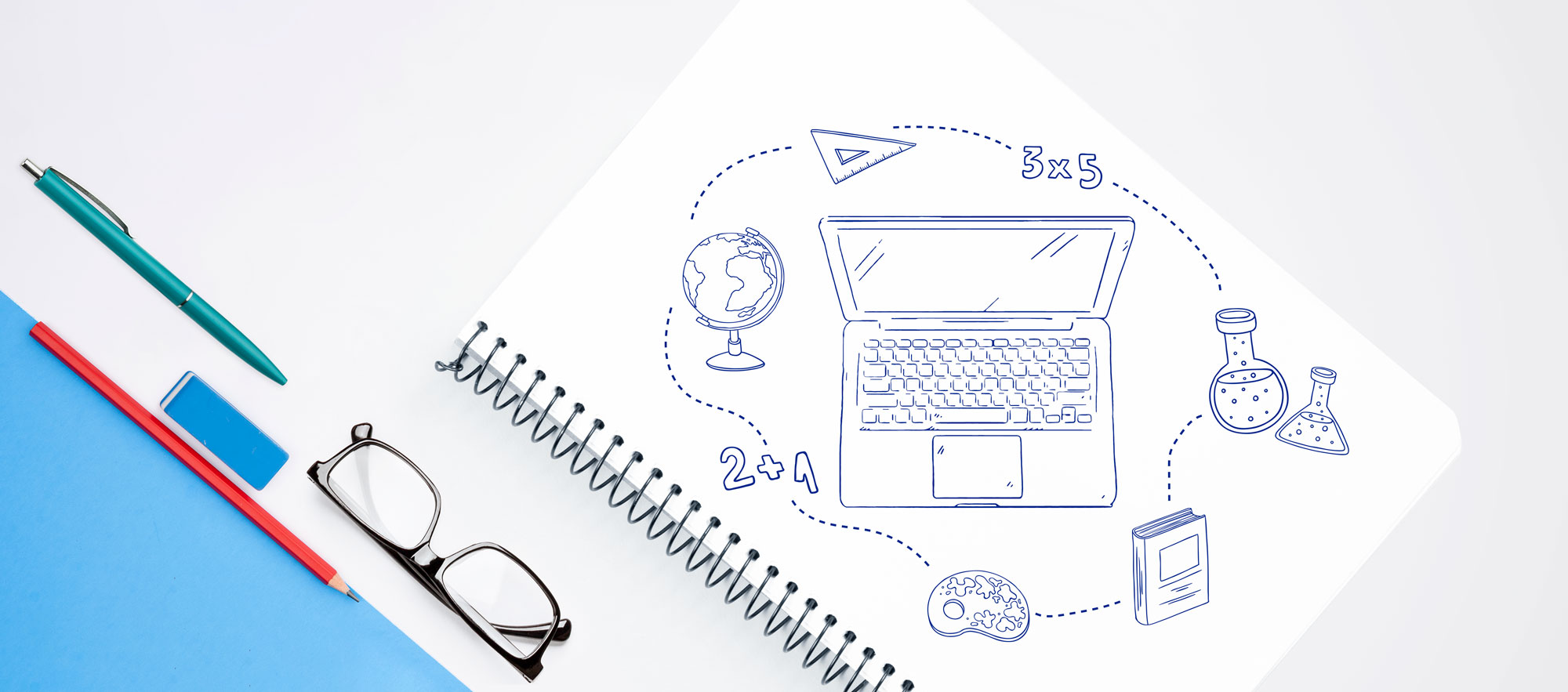
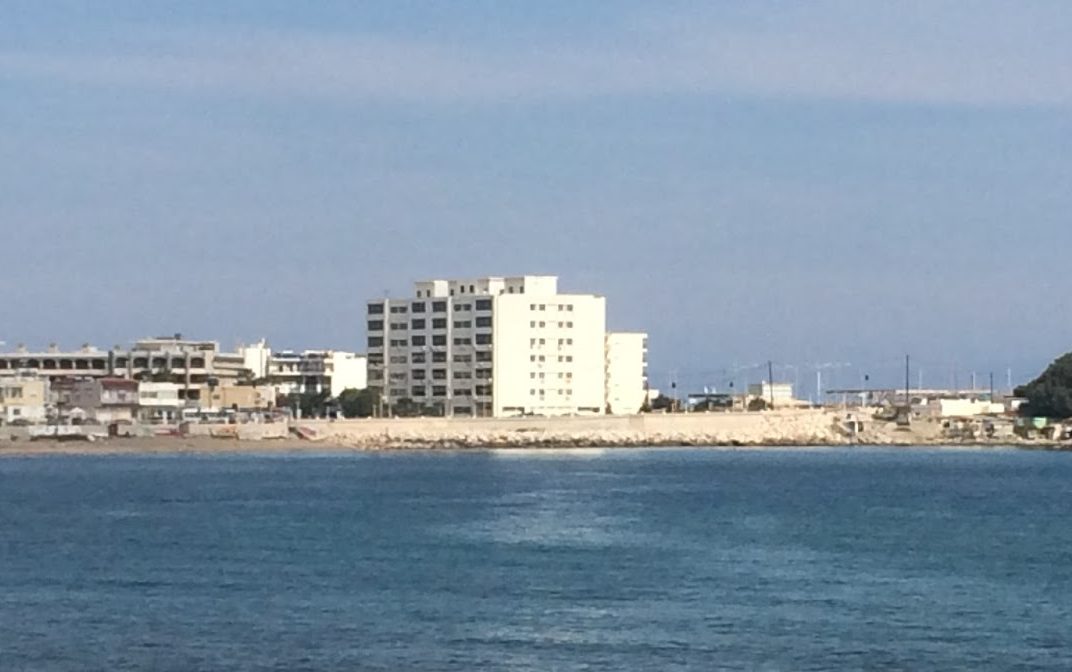
Directorate of Secondary Education of the Dodecanese
Directorate of Secondary Education of Dodecanese is public educational authority, supervising 80 schools, 15.000 students (general and vocational) and 2.500 teachers in the region. Moreover, Directorate supervises adult and lifelong learning institutions in the region of Rodοs and surrounding islands of Dodecanese. It is attached to the Ministry of Education, Research and Religious Affairs in Greece and it is a decentralized educational service of the public sector. Its responsibility has to do with educational, pedagogical and administrative matters.
Dodecanese region has special geographical features: 18 islands, small scale schools in isolated islands, distance from mainland Greece. Due to tourism industry in the region, there are pupils of different background: first and second generation children with immigrant background, Roma students, financial immigrants, and recently there are many refugees families and students.
Directorate acts as facilitator of innovative approaches and projects in education in the region. It implements projects, pilot studies and teaching programmes in cooperation with other authorities/organizations in order to open schools to society and to correspond to local needs. Directorate aims to improve education for all students irrespectively of their social and cultural background. Moreover, there is an effort to interconnect students and teachers from all islands and to support online cooperation.
Besides synergies at regional level, Directorate seeks cooperation at European level in order to broaden perspective, work with schools abroad and learn from each other, transfer successful practices from other schools and prepare teachers and learners become responsible European citizens of a multicultural society.
Digital culture is a priority for Directorate in order to respond to the rapid technological developments of our era and to overcome geographical limits amongst the islands in the Aegean sea. Staff and teachers at directorate exploit many web tools and apps in order to support online and mobile learning and to facilitate communication between teachers, especially for those who live in the smaller and less populated islands.
Team
Directorate has a team of expert teachers, university professors and school counselors with previous knowledge on implementation of European and national wide projects. They act as multipliers at schools and offer guidance to teachers. The team works with teachers teams in each school in order to support the practical application of the projects. The team of expert teachers comes from all educational sectors, lower secondary, upper secondary, VET, Universities, adult training. They are competent in foreign languages and ICT, they have participated in many European projects and they are willing to support changes at schools.
2nd Upper secondary School of Rodos, Greece
The 2nd High School of Rhodes – “Kazoulleio” is a public school in the city center of Rhodes. It is one of the oldest and most important schools of the Dodecanese. The school is housed in a neoclassical building built in 1909 thanks to the generous donation of two great Rhodian benefactors: the Kazoullis and the Venetians. Although the building is old, most classrooms are equipped with projectors and computers, thereby facilitating teaching. The school has 330 students between 15 and 18 and 30 teachers of all disciplines.
A large percentage of our students (85%) continue their studies in higher education.
The main goals of our school are to improve the performance of our students, to provide them with all the skills they need to become responsible citizens, and to create a friendly, pedagogical climate in our school. In order to achieve these goals, it is necessary to open the school and become more extroverted, but also to gain valuable experience through our participation in European programs.
In recent years, the school has participated in many volunteering programs. One such project was the participation in a pan-European recycling program, in which our school took the fourth place. In addition, our school participates in the “Rhodes for Life” annual event, which raises money for the purchase of medical equipment for cancer patients. This equipment is then donated to the local hospital. Our social activity is also intense, with the aim of helping our fellow citizens in need. We participate in environmental projects organized by the Hellenic Red Cross and EFTHITA (a non-profit non-governmental organization dealing with road safety). Our involvement in all these projects is featured on the school’s website.
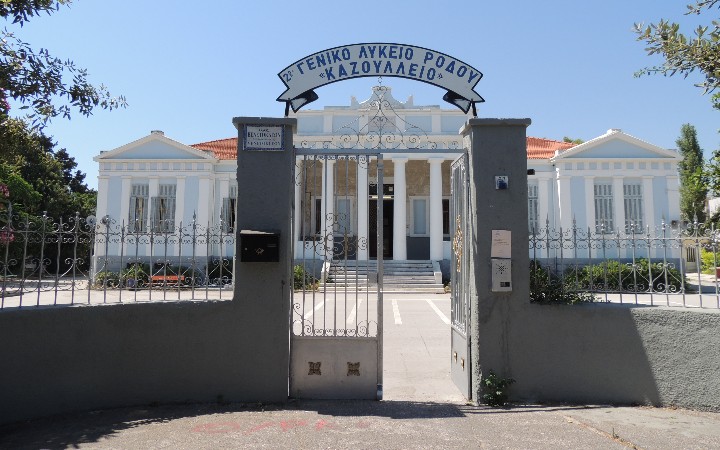
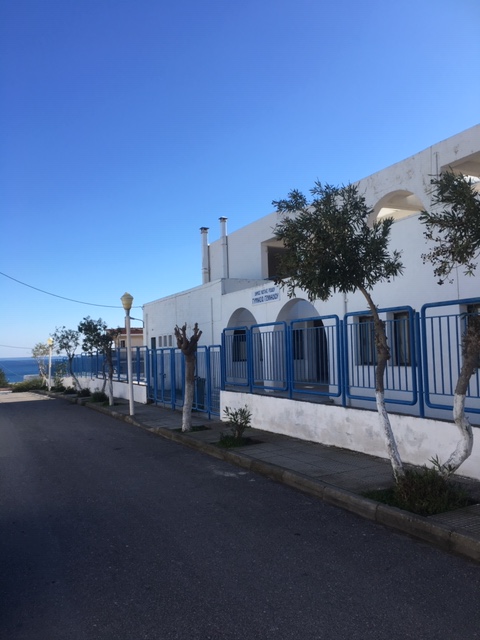
Secondary School of Gennadi, Rodos, Greece
Gymnasio Gennadiou (Secondary School of Gennadi) is a public General Secondary school at a rural area at the south part of Rhodes island. It offers lower and upper general secondary education. The school has 27 teachers and 310 students, aged 12-18.
Although rural, the area has rapid tourism developed in recent years and has attracted many families who settle in the area in order to get a job in the hotel industry. As a result the school has learners from different social, financial and cultural backgrounds and has a percentage of 60% of learners coming from different nationalities.
The priorities of the school are:
1. Improvement for all students in both school performance and social development. The school aims at improvement of academic performance, personal and professional skills of students, intercultural education and support to individual needs of all learners.
2. The school aims at providing a happy school environment for all students, while supporting special talents. The teachers organise extra curricular activities that enrich school curriculum, encourage student motivation and follow different pedagogical approaches.
3. Close cooperation with families and community. The school considers that educational work cannot be separated from family background. The school aims at close cooperation with parents and guardians and organises frequent meetings in order to support communication of all different groups.
4. European projects to support European cooperation and citizenship. The school aims at participating in Erasmus plus projects in order to offer the chance to its students and teachers to work together and learn more about other European schools. It is expected that through teacher and students mobilities, through shared work with peers from other countries and through cooperation amongst schools, European identity is reinforced and best practices are exploited.
Secondary School of Zipari, Kos, Greece
Gymnasio Zipariou is a public General Secondary school in Kos in the Dodecanese Region of Greece with 230 students and 35 teachers of all disciplines,
Zipari is a settlement located on a flat stretch of land north of Asfendiou, on the provincial road of Kos-Kefalos. It is a booming little village which has been growing quite steadily during the past years as a lot of the people, among them being those with different social, financial and cultural background employed in Kos Town tend to prefer the modern facilities that Zipari has to offer. As a result there has been an increasing influx of foreign students given the great immigration waves Kos has experienced mostly since 2015.
Zipari Middle School aspires to provide students with a modern Greek education with a European dimension and a global perspective.
Its main objective is to offer a high level of education, with the students’ well-being and the realization of their objectives in mind. The school staff ensure the most fertile ground and secure environment, the necessary conditions for students to develop their aptitudes and strengthen their abilities, to create and stand out. Teachers of all disciplines help students to shape multifaceted personalities, while inspiring and guiding them to success in their cultural and social life. In this way, the school facilities and the staff give students an opportunity to develop their talents and abilities and to win nationwide distinctions in Sciences, Humanities, Arts and Culture (theater groups, music groups, choirs, literary groups, art) and Sports. It’s worth mentioning that the school has also participated in many volunteering programs. Our involvement in all these projects is featured on the school’s website.
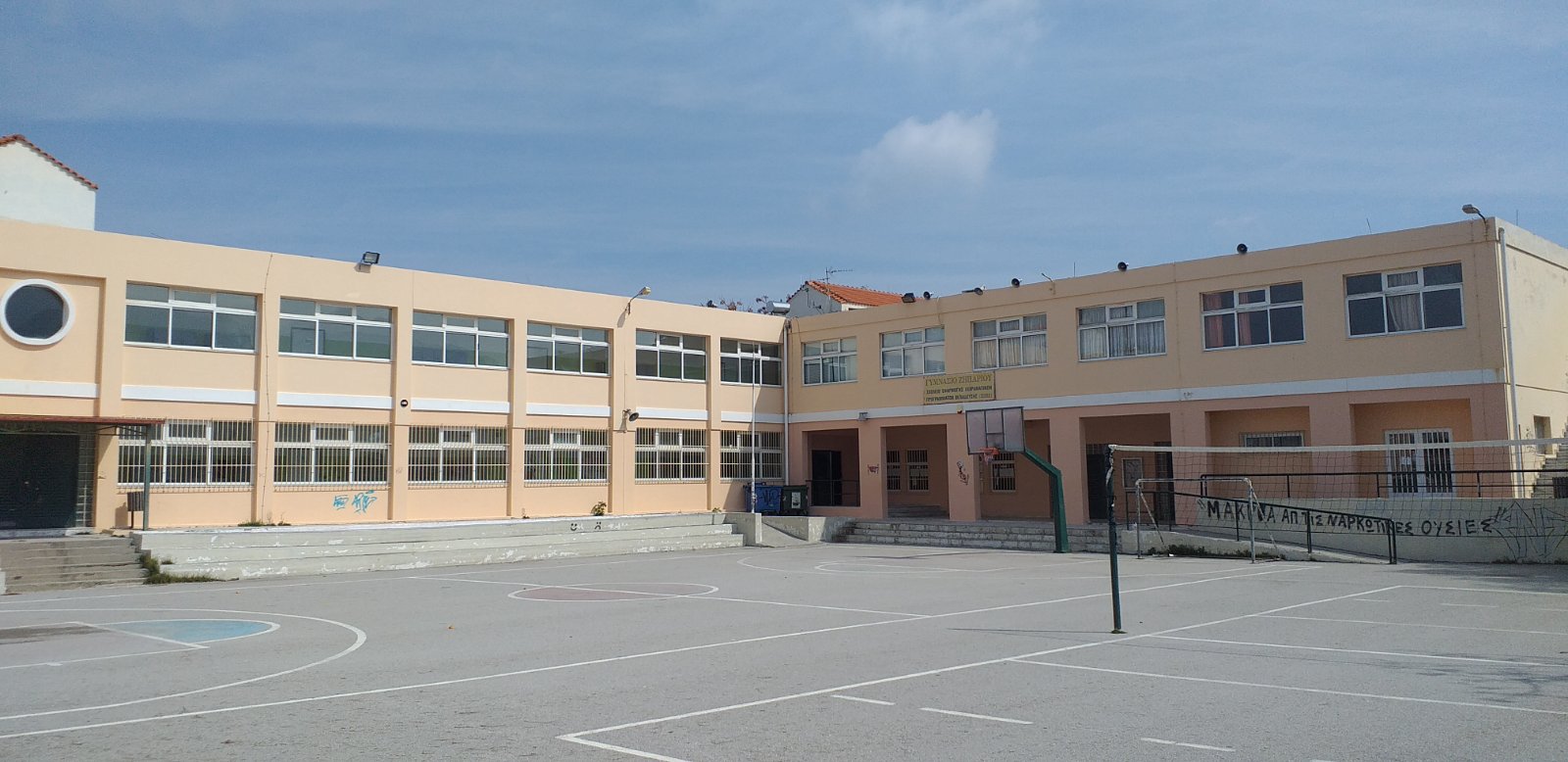
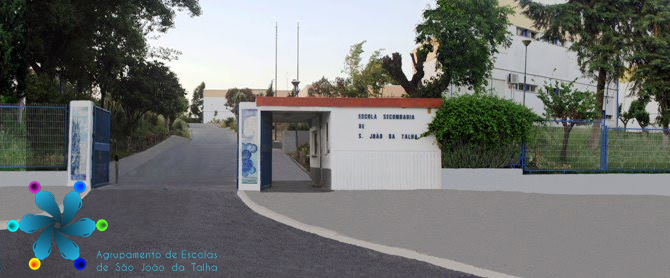
Agrupamento de Escolas de São João da Talha, Secondary School, Lisbon, Portugal
The school belongs to the Agrupamento de Escolas de São João da Talha school group, which consists of four Primary Schools with Kindergarten, a Primary School with grades 5 to 9, and a Secondary School, with 1876 students, 159 teachers and 48 teachers. The student workforce belongs to the lower middle class, where 41% of the students receive financial support and 136 are students with special needs. The school complex is located in the village of S. João da Talha on the outskirts of Lisbon. The village has about 17,252 inhabitants (2011 population census), spread over several neighborhoods. It is an urban village, dominated by detached houses or apartment complexes. Small industries and trade are the main sectors of employment, while a large percentage of the population works in Lisbon. Near the schools is the Refugee Reception Center, which is why there is a need to integrate the various nationalities (28 in total) in the schools and to support multicultural classes. We participate in many national programs on environmental education, use of digital technology, scientific projects, and language activities. The school also offers training programs for the KA1 action on the use of Information Technology and Communication Technologies and the “Future Classroom” (https://www.schooleducationgateway.eu/en/pub/teacher_academy/catalogue/detail.cfm?id=37611).
The school operates on the initiative of teachers and with the support of the management a class has followed the basic principles of the Future Classroom (Future Classroom Lab) in Brussels and has been certified. The classroom was originally used by a group of teachers who had the idea while after three years of operation it is used by 70% of the school staff. It is important to mention that the Future Classroom is the favorite classroom of all the students of the school. Regarding Information and Communication Technologies, the BLENDIT program enabled us to have online platforms for students, parents and teachers and to use the platform in pedagogical and administrative level. Also, it improved student-teacher collaboration through the platform and the possibility of using cloud computing (http://erasmusproject.wixsite.com/blend-it; http://www.aesjt.pt/plataforma).
CEP La Laguna, training centre, Public educational authority, Tenerife, Spain
CEP La Laguna ( La Laguna teachers´ training center) is a public and external support center (depending from the educative administration Consejería de Educación Universidades, Cultura y Deportes del Gobierno de Canarias henceforth CEUCD) providing pedagogic advice to schools and teachers. It is located in San Cristóbal La Laguna, Tenerife. This city was declared a world heritage site by UNESCO in 1999 and it is one of the cities with better connections as it is the nearest town to the Tenerife North airport. CEP La Laguna offers pedagogical advice, consulting, information, provision of loan material, and training amongst other actions from the educative administration to Primary and Secondary Education schools and teachers from CEP La Laguna´s scope of action. CEP La Laguna was inaugurated in 1984 and since then this organization offers support to teachers now through the current CEP network where the 14 CEP in the Canary Islands cover this main aim of the CEUCD.
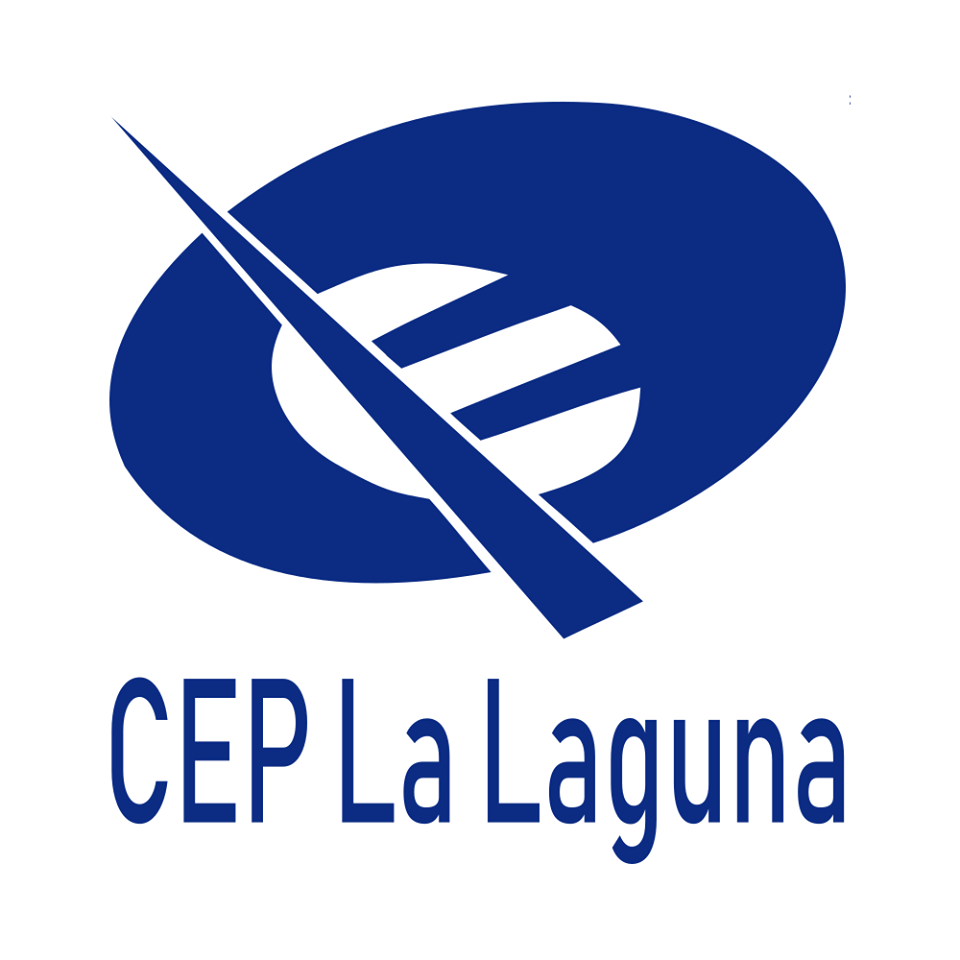
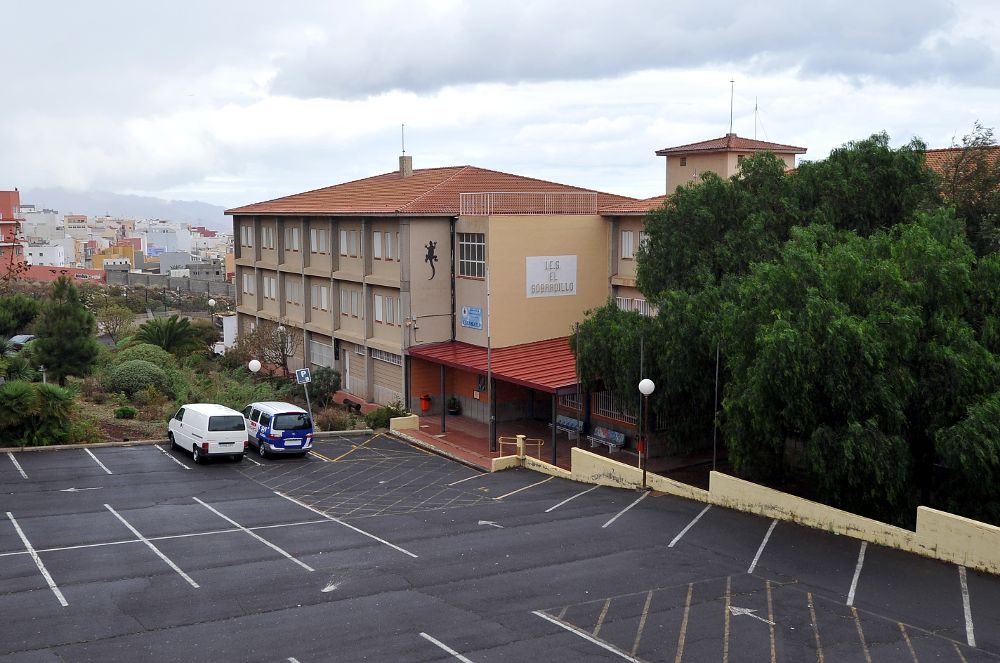
IES EL SOBRADILLO, Secondary School, Tenerife, Spain
IES El Sobradillo is Seconday School located in a peripheral neighborhood in the southwest district of the capital of the island of Tenerife. It offers the teaching of Compulsory Secondary Education, Baccalaureate and Vocational Training. Although we have an Enclave Classroom that trains students with intellectual and motor disabilities.
The global number of professionals that make up the staff of our school it’s 79 people, 62 teachers, 6 of administration and 11 external to the school staff who regularly work with us.
We have more than 600 students for all the teachings we’ve mentioned before, who come from an environment with a lack of healthy habits also due in creating positive routines at home, largely associated with a very low purchasing power.
This context makes our school working in a lot of programmes that involve our students and their families participate in activities proposed by the City Council, health center in the area, social services, neighborhood and family associations, as well as non-governmental organizations that offer everything type of workshops and activities to promote a comprehensive education of the entire educational community.
Even more in the last years, the school has applied for Erasmus+ programmes in order to improve the quality of life and teaching of or students. Three years ago we applied for the first time on Erasmus+, with the aim of improve the coexistence in our institution with the help of the significant proportion of teachers and students who were yet involved in numerous local projects.
Then, the following course, we presented another Erasmus+ project with the idea of involving as many agents as possible in the work and transfer of positive health habits in our educational community.
Last year we’ve joined to a new project about the School Classrooms in the future with other partners of Greece, Norway, Finland, Italy and Portugal.
Finally we’re involved in other Erasmus+ Projects of Vocational Training with students of our families that have to go abroad to do the practice modules.
We have had a different coordinator for each project we have been working on in the way of give them different points of view and to achieve the goals of each project. All of them are teachers that have been working in our school for more than 5 years and for now, they don’t have the intention to leave the school, by the implication they actually have in this kind of projects.
Actually we are developing two projects about entrepreneur and innovation with students of vocational training. One of them about the simulation of companies with advanced software and virtual reality and the other one, a project for the community to teach them and let them some land in our school to create local urban gardens for the community.
For those projects we have to keep in touch with all the institutions of the area, social workers from the city hall and the community of school garden network, to provide this resource for the people they needed.
Fyllingsdalen videregående skole, Secondary School, Bergen, Norway
Fyllingsdalen High School is located in Bergen, Vestland County, Norway.
The school was built in 1980 and has around 500 pupils between the ages of 16-19 and 80 employees.
Fyllingsdalen High School offers study specialization, health and upbringing, drama and teaching for adapted groups.
Study specialization lasts three years. The first year, Vg1 is common to anyone who has chosen study specialization. In the second and third year, Vg2 and Vg3, students can choose the program area Mathematics and Sciences or Social sciences/Economics and Languages.
Study specialization is recommended for students who like to work with theoretical subjects and want to take higher education. Study specialization opens up opportunities for students, giving them a taste of the subject they can choose at the higher level. At the same time, they gain broad knowledge that they will enjoy and use for their entire lives.
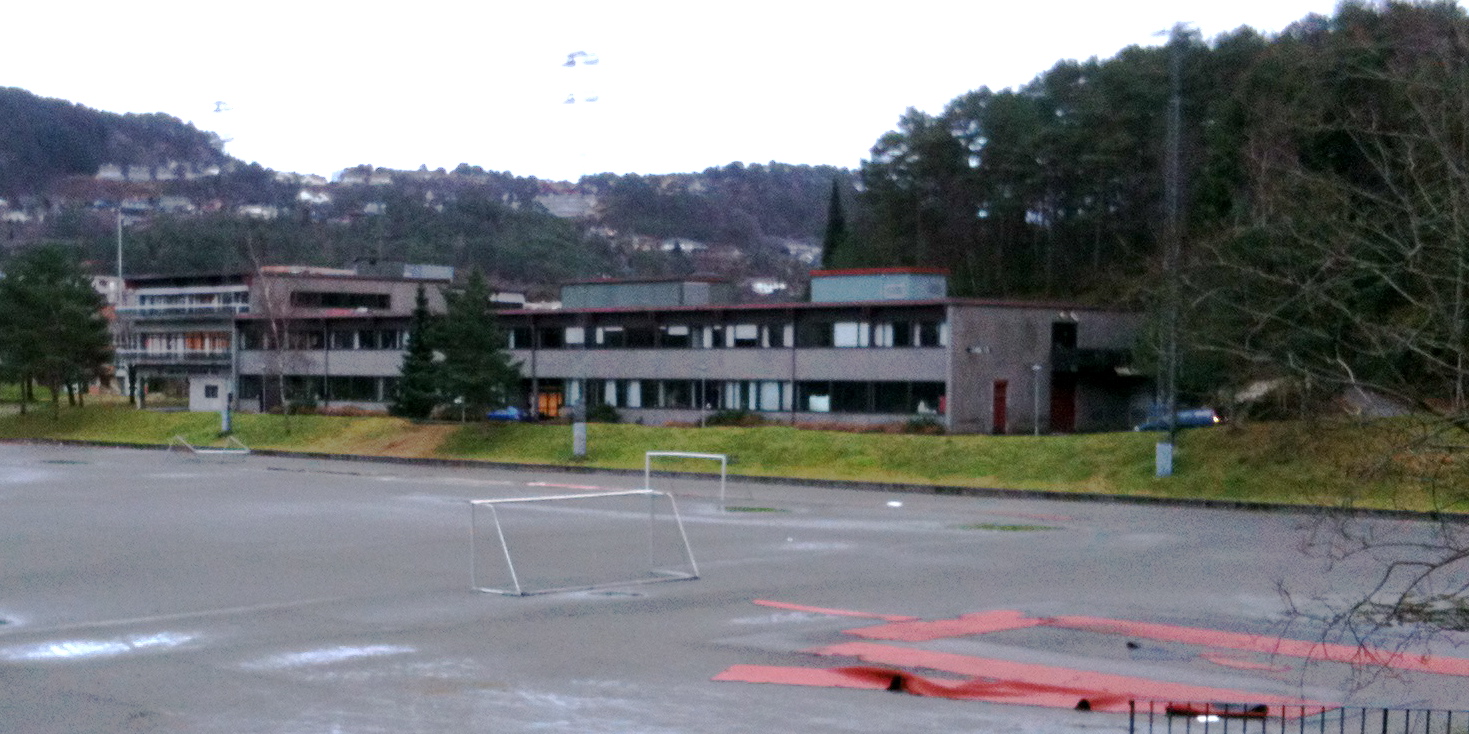
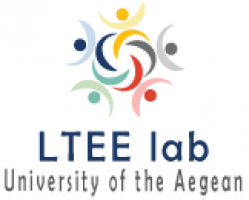
University of the Aegean, LTEE, Rodos, Greece
The University of the Aegean (UAegean) was founded in 1984. The University Units are located on six different islands in the Aegean Archipelago (Lesvos, Chios, Samos, Syros, Rhodes and Lemnos), thus making the University of the Aegean a pioneer network university.
The early and full incorporation of Information and Communication Technologies in all aspects of academic and administrative operations and the important research outputs in specific fields of excellence and innovation have transformed this unique network of “academic ports of studies and research” into a dynamic and competitive institution.
The UAegean has received consistently excellent feedback in evaluations that have taken place at national, European and international level, as a result of the study programmes offered by the institution and its competitive research programs.
The Laboratory of Learning Technology and Educational Engineering (LTEE), is a Research and Development laboratory at the School of Humanities, Department of Sciences of Pre-school Education and of Educational Design, University of the Aegean, located in the island of Rhodes in Greece. The LTEE lab was founded in 2000.
The Laboratory focuses on Learning Technology (valorisation of the cognition and the emerged intelligence mechanisms, design, development and implementation of technology-enhanced learning environments) and on Educational Engineering (systemic approach of the variety and complexity of interactions among the learning-teaching situations and the organization models of educational units).